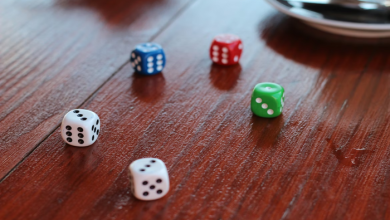
Sports arenas become the stage for true dramas of the human spirit. Behind every match, every race, lies something greater than mere competition. The philosophy of sport reveals a paradoxical truth: defeat can sometimes be more valuable than victory itself.
A New Perspective on Sports Results
The scoreboard shows the score, the stopwatch records the time, referees deliver verdicts. However, true success in sports is measured by different standards. When a young swimmer improves their personal record by two seconds but finishes sixth, their achievement surpasses the formal win of someone who triumphed by chance.
Such situations are found everywhere. A boxer who lasts all rounds against a world champion gains more experience and respect than from an easy win over a weak opponent. A cyclist who completes a mountain stage for the first time without withdrawing accomplishes a personal feat regardless of their final placement.
Mechanisms of Psychological Transformation
Stress Adaptation of the Body
The difficulties of willpower in sports are activated especially in moments of failure. The athlete’s brain initiates complex adaptation mechanisms. The hypothalamus signals the pituitary gland, which stimulates the adrenal glands to release cortisol. In optimal concentration, this hormone improves memory and learning ability.
Neural networks restructure under stress. New synaptic connections are formed between brain areas responsible for planning, emotional control, and decision-making. The process resembles updating a computer’s operating system — old algorithms are replaced with more efficient ones.
Cognitive Processing of Failure
Defeat triggers an automatic analysis of the event. Memory replays key moments of the competition, highlighting critical mistakes and missed opportunities. The brain maps out weak spots and outlines paths for improvement.
This process occurs both consciously and subconsciously. During sleep, the glymphatic system is activated, cleansing the brain of toxins and consolidating the experience into long-term memory. The defeat literally becomes embedded in the athlete’s identity, becoming part of their professional toolkit.
Specific Examples of Athletic Transformation
Athletics: Overcoming Barriers
Marathon running illustrates the philosophy of endurance in its purest form. The 42.195-kilometer distance requires not just speed but stamina and the ability to handle pain. Around the 30-kilometer mark comes “the wall” — the point when glycogen stores are depleted, and the body switches to fat for fuel.
Many runners face this for the first time and fail to finish. But this experience becomes the starting point for future success. The body remembers the sensations and develops strategies to overcome the critical moment. Subsequent attempts are more successful precisely because of that prior failure.
Combat Sports: A School of Character
Wrestling and boxing offer a unique opportunity to study defeat in its concentrated form. Here, responsibility cannot be shifted to a team or circumstances. The outcome depends solely on the fighter’s preparation and will.
Experienced coaches deliberately match young athletes with stronger opponents. These bouts are predictably lost but provide immense educational value. The fighter learns new techniques, tests their endurance, and adapts to psychological pressure.
Team Sports: Collective Learning
Football teams use video analysis of every match. The coaching staff breaks down the game into episodes, identifying tactical errors and performance flaws. Defeats are analyzed especially thoroughly, as they contain the most useful information.
The process resembles a forensic investigation. Each moment is reviewed from multiple angles, establishing cause-and-effect links between players’ actions and the final result. The team receives a detailed map of its weaknesses and can work systematically to address them.
Philosophical Foundations of Accepting Defeat
Stoic Worldview
Ancient Greek Stoics developed the concept of dividing events into controllable and uncontrollable. An athlete can influence preparation quality, tactics, and mindset but cannot control the opponent’s actions, weather conditions, or referees’ decisions.
Stoic philosophy teaches us to focus on the process rather than the outcome. A wrestler prepares for a match as thoroughly as possible but accepts any result as natural. This approach paradoxically increases the chances of success by relieving excessive psychological pressure.
Eastern Wisdom of Balance
Chinese Daoist philosophy views opposites as complementary forces. Yin and yang, darkness and light, victory and defeat — are all parts of a unified whole. One cannot truly understand the joy of triumph without tasting the bitterness of failure.
Japanese martial arts masters practice a ritual of gratitude to the opponent after a bout, regardless of the result. The opponent provided an opportunity to test one’s skills and gain new experience. In this context, defeat becomes a gift rather than a punishment.
Long-Term Effects of Athletic Defeats
Building Personal Resilience
Athletes who have experienced serious defeats show greater resilience in other areas of life. They are less likely to panic in critical situations, assess risks more objectively, and recover faster after setbacks.
Studies show a correlation between sports experience and success in entrepreneurship. Businesspeople with athletic backgrounds are more likely to take calculated risks and less likely to give up at the first sign of difficulty. The ability to learn from failure becomes a competitive advantage.
Development of Empathy and Leadership
Athletes familiar with failure become effective mentors. They understand the psychology of defeat from within and can provide meaningful support. Such coaches don’t just criticize mistakes but help find constructive solutions.
Teams led by leaders with experience in failure tend to be more cohesive. A captain who has gone through defeats doesn’t panic at the first challenge and transmits calm confidence to others.
Practical Application of the Philosophy of Defeat
Rethinking Evaluation Systems
Modern sports are gradually moving away from purely results-based approaches. Coaches increasingly assess athletes’ progress by improvement dynamics, not just absolute figures. A young tennis player who learns to hold serve against an experienced opponent achieves a breakthrough regardless of the final score.
Sports psychologists develop motivational systems based on personal achievements. Every athlete competes primarily with their past self. In this paradigm, losing to a strong opponent while improving personal stats is considered a success.
Integration into Life Philosophy
The principles of sports philosophy are applied far beyond arenas and stadiums. Students use lessons from athletic failures to overcome academic challenges. Entrepreneurs apply defeat analysis skills to improve business processes.
Some companies even create corporate sports programs not for employees’ physical development, but to foster the right attitude toward setbacks. When a marketing department team loses in a corporate tournament but displays improved teamwork, this becomes a victory in the long run. Just like a user logging into the dbbet login platform learns to analyze game outcomes and draw lessons from every experience.
A New Paradigm of Athletic Thinking
Modern sports philosophy offers a revolutionary view on the nature of competition. Victory and defeat are no longer opposites but different facets of the same developmental process. Every competition is an experiment, and its outcomes are equally valuable regardless of the result.
Sport becomes a laboratory of human potential, where defeats serve as catalysts for growth. They expose weaknesses, motivate improvement, and shape character. In this context, a loss can indeed be more meaningful than a formal win.
This perspective doesn’t diminish the value of victory — it expands the understanding of success. An athlete who embraces the philosophy of constructive defeat gains a powerful tool for lifelong growth and development.




